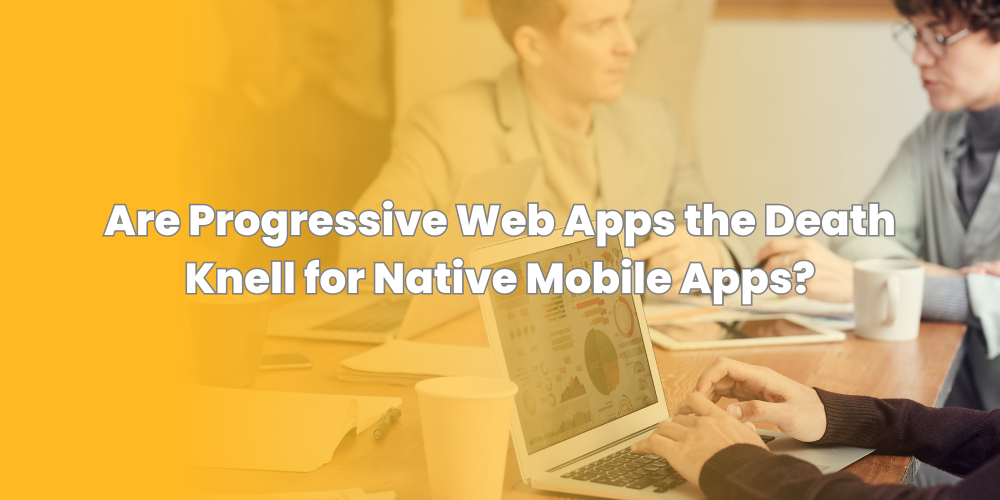Progressive Web Apps (PWAs) have emerged as a powerful alternative to native mobile apps, blending the best of web and mobile app experiences. But does this mean the end for native mobile apps? Let’s explore the potential of PWAs and whether they signal the demise of traditional app development.
What are Progressive Web Apps?
PWAs are web applications that deliver an app-like experience to users through modern web technologies. They are designed to work on any platform that uses a standards-compliant browser, offering offline capabilities, push notifications, and access to device hardware, bridging the gap between web and native apps.
Advantages of Progressive Web Apps
1. Cross-Platform Compatibility
- Description: PWAs run on any device with a web browser, eliminating the need for separate development for iOS and Android.
- Benefit: Reduced development and maintenance costs, reaching a broader audience with a single codebase.
2. Improved Performance
- Description: PWAs load faster and provide smoother interactions by leveraging service workers and caching.
- Benefit: Enhanced user experience and increased user engagement.
3. Offline Access
- Description: PWAs can function offline or with poor internet connectivity by caching resources.
- Benefit: Consistent user experience regardless of network conditions.
4. No App Store Dependence
- Description: Users can install PWAs directly from the browser without going through app stores.
- Benefit: Streamlined user acquisition and avoidance of app store fees and approval processes.
5. Automatic Updates
- Description: PWAs update automatically in the background, ensuring users always have the latest version.
- Benefit: Improved security and feature availability without user intervention.
Challenges of Progressive Web Apps
1. Limited Device Integration
- Description: PWAs have restricted access to certain device features compared to native apps.
- Challenge: May not be suitable for apps requiring deep hardware integration, such as those needing access to sensors or advanced functionalities.
2. Browser Compatibility Issues
- Description: Not all browsers support all PWA features, leading to inconsistencies.
- Challenge: Developers need to account for varying levels of support across different browsers.
3. Brand Perception
- Description: Some users and businesses may still prefer native apps due to perceived reliability and performance.
- Challenge: Convincing stakeholders of the benefits and capabilities of PWAs over native apps.
Are Native Mobile Apps Obsolete?
While PWAs offer compelling advantages, native mobile apps are far from obsolete. Native apps still excel in performance, access to device features, and integration capabilities. Industries that require high performance, gaming, or extensive use of device hardware will continue to rely on native apps.
Conclusion
Progressive Web Apps represent a significant advancement in web technology, offering many benefits that can make them an attractive alternative to native mobile apps. However, they are unlikely to completely replace native apps in the near future. Instead, we can expect a coexistence where businesses choose the best solution based on their specific needs and user base.
Partner with AleaIT Solutions
Looking to develop a PWA or a native mobile app? AleaIT Solutions can help you choose the right approach for your business. Contact us today to get started.
- Email: projects@aleaitsolutions.com
- Website: AleaIT Solutions
Transform your digital presence with cutting-edge app solutions!




